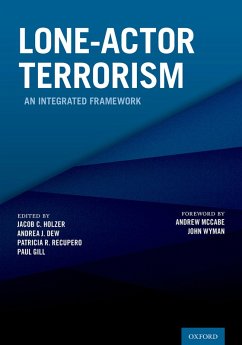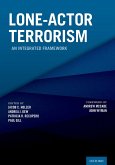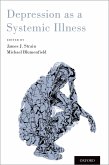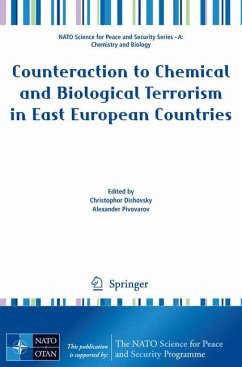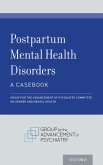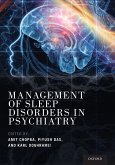Lone-Actor Terrorism (eBook, PDF)
An Integrated Framework
Redaktion: Holzer, Jacob C.; Gill, Paul; Recupero, Patricia R.; Dew, Andrea J.


Alle Infos zum eBook verschenken

Lone-Actor Terrorism (eBook, PDF)
An Integrated Framework
Redaktion: Holzer, Jacob C.; Gill, Paul; Recupero, Patricia R.; Dew, Andrea J.
- Format: PDF
- Merkliste
- Auf die Merkliste
- Bewerten Bewerten
- Teilen
- Produkt teilen
- Produkterinnerung
- Produkterinnerung

Hier können Sie sich einloggen

Bitte loggen Sie sich zunächst in Ihr Kundenkonto ein oder registrieren Sie sich bei bücher.de, um das eBook-Abo tolino select nutzen zu können.
Lone-actor terrorism has unfortunately been on the rise in recent decades, causing major adverse societal effects in the United States and abroad. While lone-actor terrorists can be driven by a range of identifiable factors such as extremist views or availability of weapons, the process of becoming and identifying these individuals is deeply complicated. Lone-Actor Terrorism: An Integrated Framework outlines the societal causes and impacts of lone-actor terrorism from a multi-disciplinary, international perspective. Drawing together seasoned insights across clinical and forensic mental health,…mehr
- Geräte: PC
- mit Kopierschutz
- eBook Hilfe
- Größe: 60.45MB
![Lone-Actor Terrorism (eBook, ePUB) Lone-Actor Terrorism (eBook, ePUB)]() Lone-Actor Terrorism (eBook, ePUB)56,95 €
Lone-Actor Terrorism (eBook, ePUB)56,95 €![Chemical Warfare Agents (eBook, PDF) Chemical Warfare Agents (eBook, PDF)]() Chemical Warfare Agents (eBook, PDF)262,95 €
Chemical Warfare Agents (eBook, PDF)262,95 €![Depression as a Systemic Illness (eBook, PDF) Depression as a Systemic Illness (eBook, PDF)]() Depression as a Systemic Illness (eBook, PDF)31,95 €
Depression as a Systemic Illness (eBook, PDF)31,95 €![Counteraction to Chemical and Biological Terrorism in East European Countries (eBook, PDF) Counteraction to Chemical and Biological Terrorism in East European Countries (eBook, PDF)]() Counteraction to Chemical and Biological Terrorism in East European Countries (eBook, PDF)161,95 €
Counteraction to Chemical and Biological Terrorism in East European Countries (eBook, PDF)161,95 €![Postpartum Mental Health Disorders: A Casebook (eBook, PDF) Postpartum Mental Health Disorders: A Casebook (eBook, PDF)]() Committee on Gender and Group for the Advancement of Psychiatry Mental HealthPostpartum Mental Health Disorders: A Casebook (eBook, PDF)17,95 €
Committee on Gender and Group for the Advancement of Psychiatry Mental HealthPostpartum Mental Health Disorders: A Casebook (eBook, PDF)17,95 €![Management of Sleep Disorders in Psychiatry (eBook, PDF) Management of Sleep Disorders in Psychiatry (eBook, PDF)]() Management of Sleep Disorders in Psychiatry (eBook, PDF)51,95 €
Management of Sleep Disorders in Psychiatry (eBook, PDF)51,95 €![Geriatric Medicine (eBook, PDF) Geriatric Medicine (eBook, PDF)]() Shibley RahmanGeriatric Medicine (eBook, PDF)55,95 €
Shibley RahmanGeriatric Medicine (eBook, PDF)55,95 €-
-
-
Dieser Download kann aus rechtlichen Gründen nur mit Rechnungsadresse in A, B, BG, CY, CZ, D, DK, EW, E, FIN, F, GR, HR, H, IRL, I, LT, L, LR, M, NL, PL, P, R, S, SLO, SK ausgeliefert werden.
- Produktdetails
- Verlag: OUP eBook
- Seitenzahl: 400
- Erscheinungstermin: 15. April 2022
- Englisch
- ISBN-13: 9780190929800
- Artikelnr.: 63681821
- Verlag: OUP eBook
- Seitenzahl: 400
- Erscheinungstermin: 15. April 2022
- Englisch
- ISBN-13: 9780190929800
- Artikelnr.: 63681821
- Herstellerkennzeichnung Die Herstellerinformationen sind derzeit nicht verfügbar.
* Preface
* Foreword
* Andrew McCabe and John Wyman
* Introduction: Scope of the Problem, Definitions and Concepts
* Jacob Holzer, Andrea J. Dew, Patricia R. Recupero, and Paul Gill
* Chapter 1: Historical Aspects and Evolution of Lone-Actor Violence
* Mark Hamm and Tammy Ayres
* Chapter 2: Case Reviews in Lone-Actor Terrorism Incidents
* Jacob Holzer, Olivia Zurek, and Lauren Simpson
* Chapter 3: Clinical Psychiatric and Neuropsychiatric Aspects of
Lone-Actor Terrorism
* Robert P. Granacher, Jr., Danielle B. Kushner, and Jacob Holzer
* Chapter 4: Psychoactive Agents and Mental Disorders in Lone-Actor
Terrorism
* Michael Arieli, Aviv Weinstein, Uri Ben Yaakov, Ronnie Berkovitz,
Alina Poperno, Hagit Bonny-Noach, and Robert P. Granacher, Jr.
* Chapter 5: Developmental Aspects of Lone-Actor Terrorists
* Karl Mobbs, Gen Ignatius Tanaka, and Terry R. Bard
* Chapter 6: The Role of Psychometrics in Investigating Lone-Actor
Terrorism
* Nancy P. Moczynski, Allen Schiller, Theodora Farah, and Eric Drogan
* Chapter 7: Understanding Lone-Actor Violence through Linguistic
Analysis
* Isabelle W.J. van der Vegt, Bennett Kleinberg, and Paul Gill
* Chapter 8: Propaganda and Lone-Actor Terrorism
* Eric Drogan
* Chapter 9: Lone-Actor Mass Casualty Events and Linkages to Organized
Violent Salafist-Jihadist Inspired Terror Groups
* Andrea J. Dew and Daniel Starr
* Chapter 10: The Internet and Social Media as an Enabling Force
* Patricia R. Recupero and Samara E. Rainey
* Chapter 11: Geographic Context: Domestic vs. International
Lone-Actors
* Christopher Jasparro and Suzanne Levi-Sanchez
* Chapter 12: Means, Mechanisms, and Trends of Operationalizing
Violence
* Christopher Winter, Ramón Spaaij, and Marilyn Price
* Chapter 13: Role of Forensic Mental Health and Lone-Actor Violence
* Ashley H. VanDercar, Ryan C. Wagoner, Phillip J. Resnick, Frank
Farnham, and Emily Corner
* Chapter 14: An Ethics Analysis of Lone-Actor Terror and Society's
Response
* Danielle B. Kushner and Philip J. Candilis
* Chapter 15: Law Enforcement Response to Lone-Actor Incidents at the
Local through Federal Levels
* Douglas Brennan, Mark Concordia, and Michael Madden
*
* Chapter 16: Post-9/11 U.S. Military and Intelligence Approaches to
Lone-Actors
* Corri Zoli
* Chapter 17: U.S. Legal Perspectives: Legislative, Intelligence, and
Law-Enforcement Aspects
* Jeffrey H. Smith, Amy Jeffress, Christopher E. Beeler, and Tian Tian
Xin
* Chapter 18: Pursuing Lone-Actor Terrorists: U.K. Counterterrorism Law
and Policy
* Stuart Macdonald
* Chapter 19: Lone-Actor Terrorism: Understanding Online Indoctrination
* Steven Hassan, Jon Caven-Atack, Mansi J. Shah, and Simran Malhotra
* Chapter 20: Hatred and Grievance as Constructs in Lone-Actor
Terrorism
* Jacob Holzer, Arya Shah, Eric Drogan, and Robert P. Granacher, Jr
* Chapter 21: Comparing Lone-Actor Terrorism to Other High-Threat
Groups
* Jacob Holzer, Emily Threlkeld, William Costanza, Patricia R.
Recupero, and Samara E. Rainey
* Chapter 22: A Risk Analysis Framework of Lone-Actor Terrorism
* Noémie Bouhana, Emily Corner, and Paul Gill
* Chapter 23: A Framework for Preempting Lone-Actor Terrorists During
the Pre-Incident Phases
* Joshua Sinai
* Chapter 24: Threat Assessment: the TRAP-18 and Application to a
Lone-Actor Terrorism Incident
* J. Reid Meloy and Jacob Holzer
* Chapter 25: Use of Threat and Risk Assessment Tools in the Evaluation
of Lone-Actor Terrorists
* Hy Bloom, Reem Zaia, and Arya Shah
* Chapter 26: Developing a Risk Assessment and Intervention Strategy:
Future Directions in Research and Practice
* Jacob Holzer, Andrea J. Dew, Patricia R. Recupero, and Paul Gill
* Preface
* Foreword
* Andrew McCabe and John Wyman
* Introduction: Scope of the Problem, Definitions and Concepts
* Jacob Holzer, Andrea J. Dew, Patricia R. Recupero, and Paul Gill
* Chapter 1: Historical Aspects and Evolution of Lone-Actor Violence
* Mark Hamm and Tammy Ayres
* Chapter 2: Case Reviews in Lone-Actor Terrorism Incidents
* Jacob Holzer, Olivia Zurek, and Lauren Simpson
* Chapter 3: Clinical Psychiatric and Neuropsychiatric Aspects of
Lone-Actor Terrorism
* Robert P. Granacher, Jr., Danielle B. Kushner, and Jacob Holzer
* Chapter 4: Psychoactive Agents and Mental Disorders in Lone-Actor
Terrorism
* Michael Arieli, Aviv Weinstein, Uri Ben Yaakov, Ronnie Berkovitz,
Alina Poperno, Hagit Bonny-Noach, and Robert P. Granacher, Jr.
* Chapter 5: Developmental Aspects of Lone-Actor Terrorists
* Karl Mobbs, Gen Ignatius Tanaka, and Terry R. Bard
* Chapter 6: The Role of Psychometrics in Investigating Lone-Actor
Terrorism
* Nancy P. Moczynski, Allen Schiller, Theodora Farah, and Eric Drogan
* Chapter 7: Understanding Lone-Actor Violence through Linguistic
Analysis
* Isabelle W.J. van der Vegt, Bennett Kleinberg, and Paul Gill
* Chapter 8: Propaganda and Lone-Actor Terrorism
* Eric Drogan
* Chapter 9: Lone-Actor Mass Casualty Events and Linkages to Organized
Violent Salafist-Jihadist Inspired Terror Groups
* Andrea J. Dew and Daniel Starr
* Chapter 10: The Internet and Social Media as an Enabling Force
* Patricia R. Recupero and Samara E. Rainey
* Chapter 11: Geographic Context: Domestic vs. International
Lone-Actors
* Christopher Jasparro and Suzanne Levi-Sanchez
* Chapter 12: Means, Mechanisms, and Trends of Operationalizing
Violence
* Christopher Winter, Ramón Spaaij, and Marilyn Price
* Chapter 13: Role of Forensic Mental Health and Lone-Actor Violence
* Ashley H. VanDercar, Ryan C. Wagoner, Phillip J. Resnick, Frank
Farnham, and Emily Corner
* Chapter 14: An Ethics Analysis of Lone-Actor Terror and Society's
Response
* Danielle B. Kushner and Philip J. Candilis
* Chapter 15: Law Enforcement Response to Lone-Actor Incidents at the
Local through Federal Levels
* Douglas Brennan, Mark Concordia, and Michael Madden
*
* Chapter 16: Post-9/11 U.S. Military and Intelligence Approaches to
Lone-Actors
* Corri Zoli
* Chapter 17: U.S. Legal Perspectives: Legislative, Intelligence, and
Law-Enforcement Aspects
* Jeffrey H. Smith, Amy Jeffress, Christopher E. Beeler, and Tian Tian
Xin
* Chapter 18: Pursuing Lone-Actor Terrorists: U.K. Counterterrorism Law
and Policy
* Stuart Macdonald
* Chapter 19: Lone-Actor Terrorism: Understanding Online Indoctrination
* Steven Hassan, Jon Caven-Atack, Mansi J. Shah, and Simran Malhotra
* Chapter 20: Hatred and Grievance as Constructs in Lone-Actor
Terrorism
* Jacob Holzer, Arya Shah, Eric Drogan, and Robert P. Granacher, Jr
* Chapter 21: Comparing Lone-Actor Terrorism to Other High-Threat
Groups
* Jacob Holzer, Emily Threlkeld, William Costanza, Patricia R.
Recupero, and Samara E. Rainey
* Chapter 22: A Risk Analysis Framework of Lone-Actor Terrorism
* Noémie Bouhana, Emily Corner, and Paul Gill
* Chapter 23: A Framework for Preempting Lone-Actor Terrorists During
the Pre-Incident Phases
* Joshua Sinai
* Chapter 24: Threat Assessment: the TRAP-18 and Application to a
Lone-Actor Terrorism Incident
* J. Reid Meloy and Jacob Holzer
* Chapter 25: Use of Threat and Risk Assessment Tools in the Evaluation
of Lone-Actor Terrorists
* Hy Bloom, Reem Zaia, and Arya Shah
* Chapter 26: Developing a Risk Assessment and Intervention Strategy:
Future Directions in Research and Practice
* Jacob Holzer, Andrea J. Dew, Patricia R. Recupero, and Paul Gill
